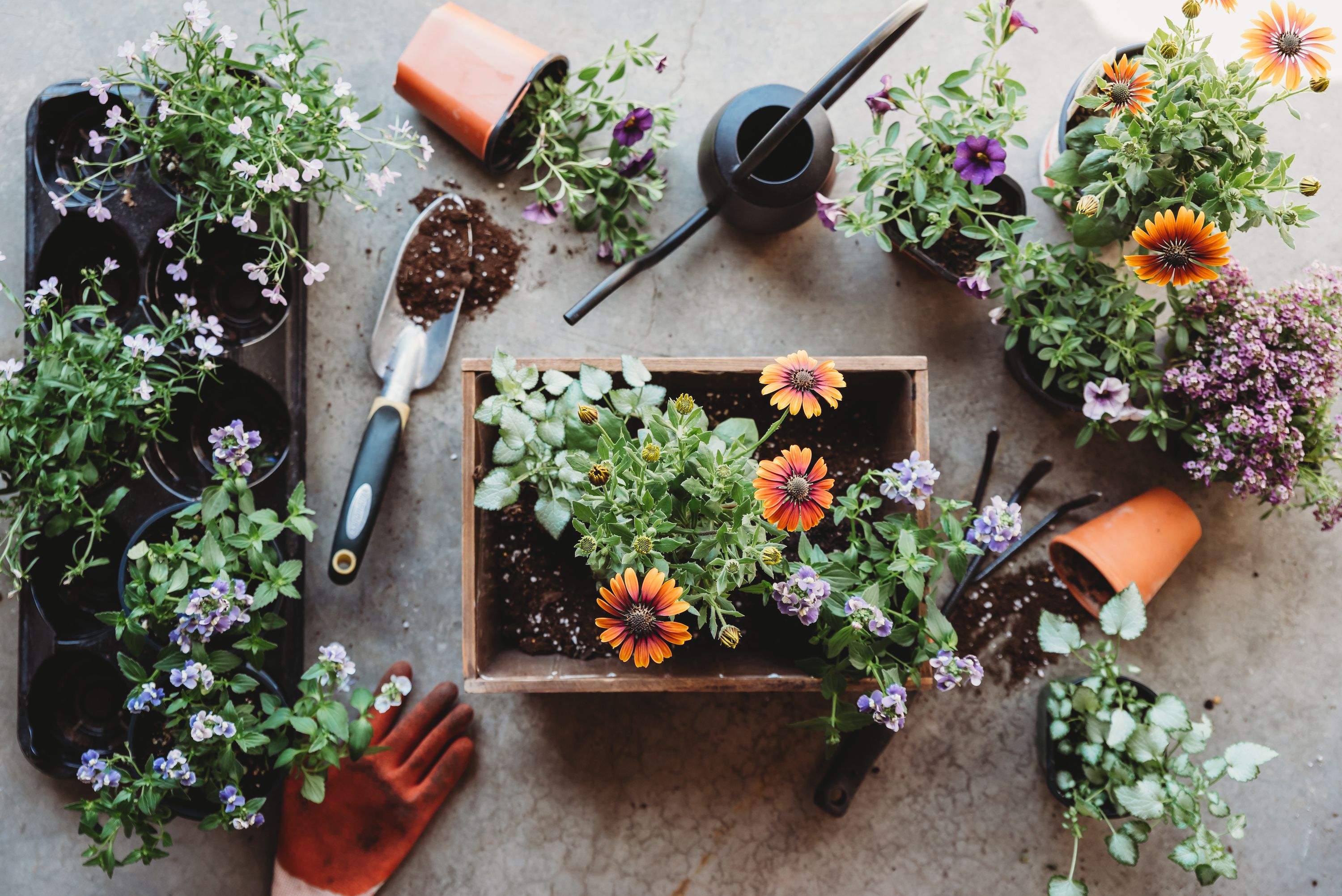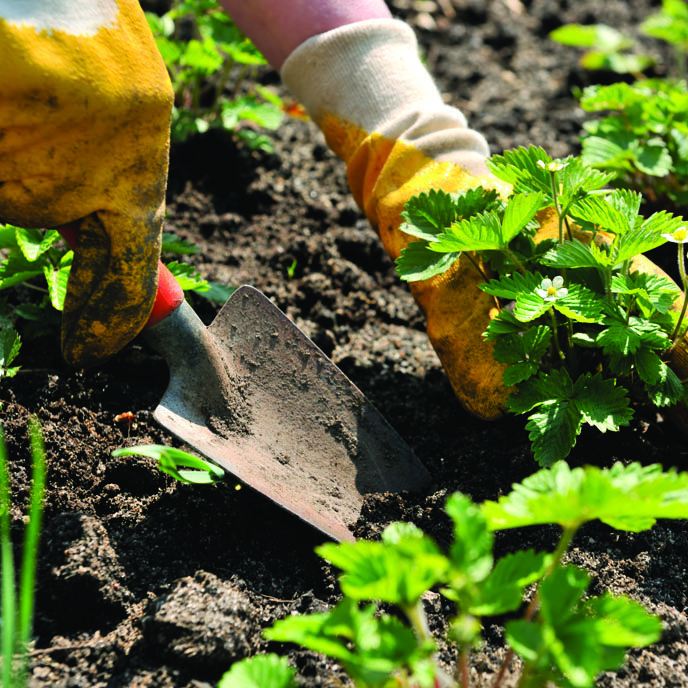From Seed to Grow: Newbie Gardening Tips for every single Period
Wiki Article
From Seed to Harvest: a Novice's Trip Into Horticulture
From Seed to Harvest: A Newbie's Journey Into Gardening uses a comprehensive and useful overview for those new to the globe of gardening. This book takes visitors through the entire procedure, starting from picking the appropriate seeds and preparing the soil, to nurturing the growing plants and ultimately collecting and delighting in the native fruit and vegetables. Written in a specialist style, this guide gives important suggestions and strategies to aid newbies successfully cultivate a thriving yard. With a concentrate on practicality and clarity, this book intends to encourage individuals with the understanding and abilities needed to begin on their horticulture journey. Whether you have a small balcony or a large backyard, this guide will outfit you with the devices required to turn your gardening ambitions right into a thriving fact.Picking the Right Seeds
When embarking on the journey of horticulture, choosing the ideal seeds is an essential step for newbies to make certain successful growing. newbie gardening. The option of seeds can substantially affect the overall result of a garden, as various varieties have varying growth behaviors, disease resistance, and flexibility to certain environmentsTo begin, it is vital to think about the particular goals and preferences of the gardener. Are you interested in expanding flowers, natural herbs, or veggies?
Additionally, it is vital to study and pick seeds that are ideal for the neighborhood climate and expanding problems. Some plants thrive in complete sun, while others favor shade or a certain sort of soil. By choosing seeds that are inherently adapted to the environment, beginners can conserve themselves from prospective disappointment and irritation.

Preparing the Dirt for Planting
After choosing the appropriate seeds for your garden, the next crucial action in the newbie's journey into gardening is preparing the soil for planting. Correct soil preparation is essential for offering a healthy and balanced and fertile environment for your plants to grow and flourish.The very first step in preparing the soil is to get rid of any type of weeds, rocks, or particles that might prevent the development of your plants. This can be done by hand or with the help of gardening tools such as a trowel or a yard fork. As soon as the area is clear, it is essential to loosen up the dirt by tilling or turning it over. This not just assists to separate any kind of compressed soil however also enhances oygenation and drain.
Adding organic issue to the soil is another critical step in dirt prep work. Organic matter, such as compost or well-rotted manure, improves the dirt with necessary nutrients and enhances its structure. It also helps to maintain moisture, which is essential for plant growth. Spread out a layer of raw material over the tilled dirt and mix it in thoroughly.
Last but not least, it is necessary to check the pH degree of the soil (newbie gardening). Many plants prefer a slightly acidic to neutral pH variety. If the soil is also acidic or alkaline, changes can be included to readjust the pH level as necessary.
Sowing and Caring for Seedlings
To ensure the successful development of your plants, appropriate sowing and cautious nurturing of plants is important, developing upon the soil preparation talked about in the previous subtopic. Planting plants is a vital step in the gardening process, as it establishes the foundation for solid and healthy and balanced plants.
Along with light, seed startings require consistent wetness to grow. Water the seed startings routinely, keeping the soil uniformly damp but not waterlogged. Overwatering can lead to root rot, while underwatering can cause the seedlings to pass click resources away and perish.
To additionally support the growth of plants, provide them with a mild breeze. This can be attained by utilizing a little fan on a reduced setup. The wind aids enhance the stems of the seedlings, making them extra resistant to wind and various other ecological elements.
Supporting Your Expanding Plants
- As soon as your seed startings have actually germinated and started to expand, it is important to provide proper care and focus to nurture their ongoing advancement. This consists of supplying sufficient water, sunshine, and nutrients, along with securing them from pests and conditions.
2. Sprinkling your expanding plants is crucial to their survival. Keep the soil moist, however avoid overwatering, as it can result in root rot. Water your plants on a regular basis, specifically during warm and dry durations, and make certain to water them at the base to avoid wetting the vegetation, which can welcome fungal diseases.
Sunshine is one more crucial aspect for the healthy development of your plants. Guarantee that your plants are placed in an area that gets sufficient sunshine, and if you're expanding them inside, take into consideration using expand lights to supplement natural light.
Providing your plants with the ideal nutrients is crucial for their development. Furthermore, think about utilizing natural plant foods that are mild on plants and the setting.
- Safeguarding your plants from illness and pests is vital to ensure their health. Regularly examine your plants for indications of problem or condition, and take appropriate steps such as making use of organic parasite control techniques or eliminating contaminated plants to avoid the spread.
Harvesting and Appreciating Your Homegrown Produce
Once your plants have reached maturity, it's time to gain the benefits of your horticulture initiatives by harvesting and delighting in the fruits (or veggies) of your labor. Gathering is an essential action in the horticulture procedure, as it allows you to enjoy the fresh and nutritious produce that you have actually expanded. Before you begin gathering, it's essential to establish the optimal time for each plant. This can be figured out by observing the plant's physical look, such as the color, dimension, and appearance of the fruit or vegetable. Additionally, you can describe the particular standards supplied on seed packets or gardening resources.Use a sharp set of yard shears or scissors to reduce the fruits or veggies from the plant. Be conscious not to tug or pull, as this can damage the plant original site and reduce future return.
As soon as you have actually gathered your homegrown fruit and vegetables, it's time to appreciate the fruits of your labor. Take a minute to value the hard work and dedication that went right into your yard and enjoyment in the flavors of your homegrown harvest.
Verdict

Some plants flourish in complete sun, while others prefer color or a details type of dirt.The initial step in preparing the soil is to eliminate any kind of weeds, rocks, or particles that might prevent the growth of your plants.To guarantee the successful development of your plants, appropriate sowing and careful nurturing of seedlings is crucial, building upon the soil prep work reviewed in the previous subtopic. Routinely evaluate your plants for indications of invasion or disease, and take suitable measures such as using organic parasite control techniques or removing contaminated plants to stop the spread.
In conclusion, this newbie's trip right into gardening highlights the value of selecting the ideal seeds, preparing the dirt, sowing and caring for seed startings, supporting expanding plants, and lastly, harvesting and delighting in the organic fruit and vegetables.
Report this wiki page